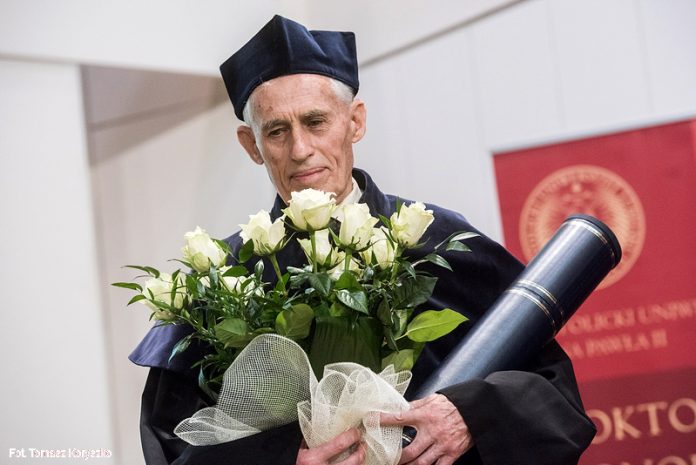
Years of research cannot be condensed into a one-hour talk, but on Sept. 17, that hour became an especially engaging one for DePauw students and faculty as Dr. Richard Swinburne spoke on “God and Suffering.”
Swinburne, a renowned philosopher who began his academic career at the University of Oxford with degrees in philosophy and a diploma in theology, has long examined whether belief in God—particularly the doctrines of the Christian religion—can be adequately justified.
With the Watson Forum in the Pulliam Center for Contemporary Media filled with students and professors, Dr. Swinburne delivered his talk in a characteristically British style, reminiscent of an old college lecture. He defended the existence of God in response to the “problem of evil,” in his address to DePauw students and faculty. This is one of the greatest challenges to theism: if God exists, how can we account for the pain and hardship that pervade human life?
The “problem of evil” challenges the existence of evil in the world with the belief in an all-powerful, all-knowing and all-good God. It argues that if such a God existed, evil wouldn’t. Since evil clearly does exist, either God does not possess all three traits—or does not exist at all. This contradiction leads either to a denial of God’s existence or to a philosophical explanation, known as a theodicy, that justifies the presence of evil. Swinburne’s view is often called a greater-good theodicy. He tries to show that the presence of evil or suffering can be consistent with an omniscient, all-powerful and wholly good God.
His central argument worked on two assumptions: first, that there is an all-powerful, omniscient God and second, that humans possess libertarian free will—meaning we can freely choose to hurt or benefit each other. By the choices we make, Swinburne argued, we also shape our character, which allows God to decide our place in eternal life.
Not everyone was convinced. Students raised questions—some asked about animal suffering, others pushed back on the Christian-centric framing of his argument. But this skepticism highlighted the essence of philosophy itself: to ask questions, to clarify and to remain curious in the pursuit of truth. “I always enjoy giving talks, and DePauw students asked some really pertinent questions,” Swinburne said afterward. The evening closed with thoughtful challenges from students and a shared sense of gratitude for Dr. Swinburne’s willingness to engage so openly with difficult questions.
